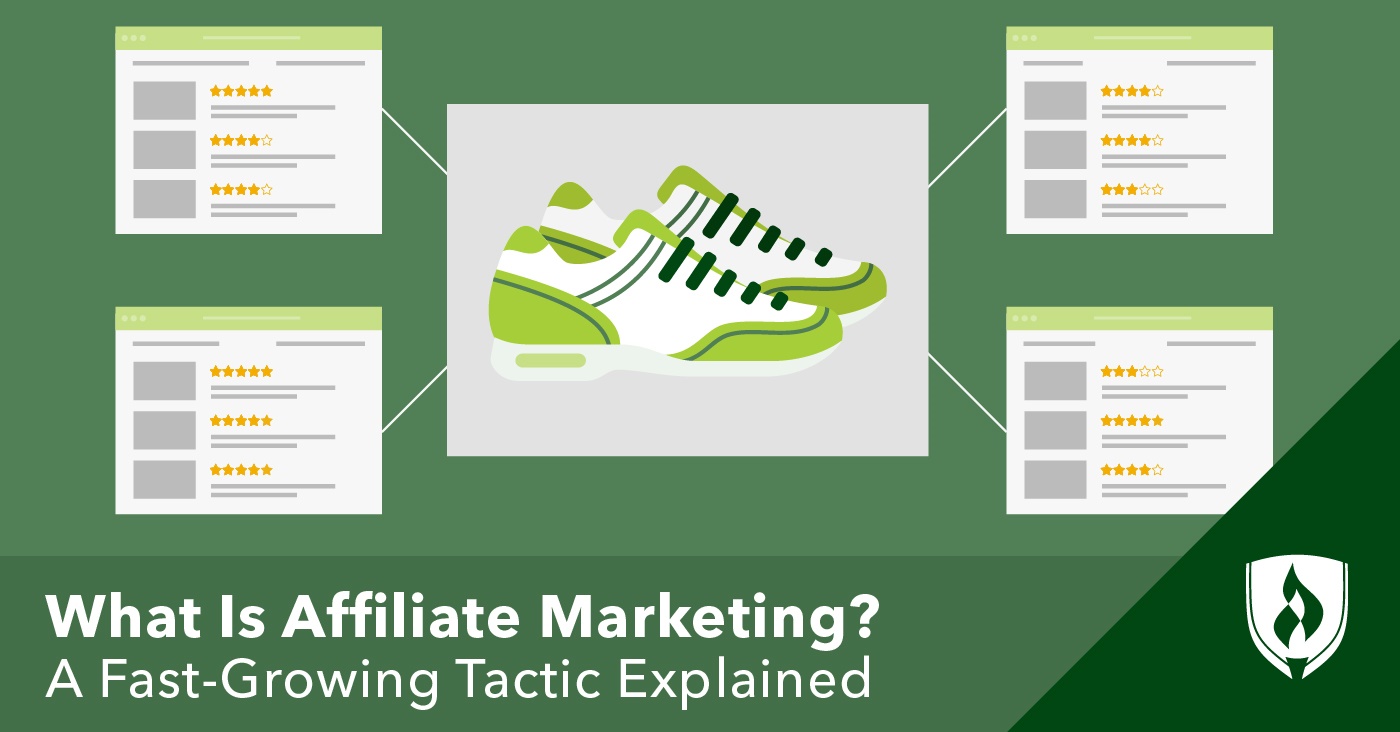
Have you ever tried a product and loved it so much that you ended up recommending it to all of your friends? Within a couple of weeks, you notice that your friends took you up on your suggestion, and maybe they even tell you about how much they are enjoying the product—just like you said they would. There may be a moment where you pause and think to yourself, “Wow, I really should be getting commission for this!”
Welcome to the idea behind affiliate marketing.
This user-based marketing tactic is becoming quite popular as huge companies like Amazon® and Instagram® develop processes to make affiliate marketing easier. The idea is to create simple and straightforward ways for users to monetize their “suggestions” to their friends and followers.
Sounds like a great concept for modern marketers, but you likely have some questions about how affiliate marketing works, ways companies use this tactic and how effective it can really be.
Affiliate marketing and CPA marketing 101
There are two terms that need immediate definition to understand affiliate marketing: “affiliate” and “CPA.” An affiliate is an individual or third party who connects themselves with another company or organization by promoting a product or service that is not their own. This can be done via an official blog, website or even through something as simple as a social media page.
CPA is an acronym in marketing that means cost per action. There are variations of this foundational performance metric used across marketing, like cost per click or cost per inquiry. In affiliate marketing, an affiliate gets paid when the intended action the company you are partnering with wants is completed. In most affiliate marketing efforts, that action is the purchase of a product or service.
Let’s put these two terms together in a hypothetical scenario: Nick has a successful blog about shoes. A large shoe company is aware of the traffic that Nick’s blog gets, so they ask him to be an affiliate of theirs. Nick agrees to advertise their product and places an ad or a link on his blog. Every time someone visiting Nick’s blog clicks the link and purchases a pair of shoes, Nick receives an agreed-upon payment. This is affiliate and CPA marketing in action.
The above hypothetical is pretty basic in comparison to affiliate marketing today. Larger companies are streamlining this whole process by making affiliate programs that allow more people to take advantage of affiliate opportunities with less work or oversight from the company.
What is an affiliate program?
An affiliate program describes the above process but as a program where terms are already established. Users can sign up for these programs to utilize their following and sell products through their website or social media.
If a company has an affiliate program already established, individuals can simply go to the company’s affiliate program page, read up on the commission rates, fill out an application for their website and wait for approval. This significantly streamlines the effort as affiliates don’t have to individually negotiate terms with their partner organizations.
What are some of the pros and cons of affiliate marketing?
Like with any marketing tactic, there’s good and bad for marketing professionals to weigh before diving in.
One clear-cut positive for affiliate marketing is the improved ability to track effectiveness. In the past, measuring the effectiveness of a traditional advertising campaign required making inferences based on tangentially related results. For example, seeing sales rise after an advertisement featuring a sports star—was it the ad campaign or other factors that may have influenced this result? Affiliate marketing, like other forms of digital marketing, cuts through a lot of that ambiguity because marketers can tell exactly who or what drove sales via trackable links.
Another potential positive is that this tactic can provide credibility and bolster the perception of a product or service. Consumers are skeptical, and simply telling them directly that your product is great isn’t always effective, and often they’ll turn to reviews for validation. Affiliates’ reviews and recommendations, when done well, can be far more impactful as the messenger is indirect.
That said, there are certainly some neutral to bad aspects to this approach. For one, marketers may not have creative control over what an affiliate says about a product or service. While there’s still an incentive for affiliates to drive sales, they may go about it in a way that doesn’t sit well with product and brand marketing strategists.
Another issue is the glut of affiliate marketing websites out there, many of which provide low-quality, transparently promotional reviews. If an affiliate lacks credibility, what does it say about your product if you’re working with them? The nature of an affiliate marketing arrangement does not help affiliates’ credibility—they have a clear financial incentive to minimize the negative and highlight the positive—and that can be a red flag for discerning consumers, particularly with mandated third-party advertising disclosures present on the page.
When does affiliate marketing make sense?
Practically any product or service can use affiliate marketing as a tactic, but it might not be a great option for every scenario. Here are a few examples of how this approach could potentially be effective:
- Product awareness: For relatively new or lesser-known products and services, affiliate marketing can be a great way to get your product introduced and build word of mouth. Additionally, links from reputable affiliate sites may be able to help boost your organization’s website in search results.
- Positioning: Similar to raising awareness, this tactic can also help with product positioning. For example, affiliate reviewers pulling together a list of the “best [insert product here] for under $100” can be an effective way to reinforce to consumers whether your product is high-end, high-value or otherwise well-suited for a particular niche.
- Highlighting unique features: If your product has a truly stand-out feature or selling point, affiliate marketing efforts can be a great way to shine a spotlight on it. Affiliate reviewers are likely to focus attention on anything that sets a product or service apart from competitors.
The future of marketing
The internet has unlocked a world of possibilities in the marketing field. Affiliate marketing is just one of many tactics and specializations digital marketing professionals have in their toolkit for driving sales. To learn more about some of the marketing roles you could potentially land with a Marketing degree, check out our article “11 Types of Marketing Specializations: The Practical Guide.” Also check out the related topic of "what is influencer marketing?"
Amazon is a registered trademark of Amazon Technologies, Inc.
Instagram is a registered trademark of Instagram LLC.




